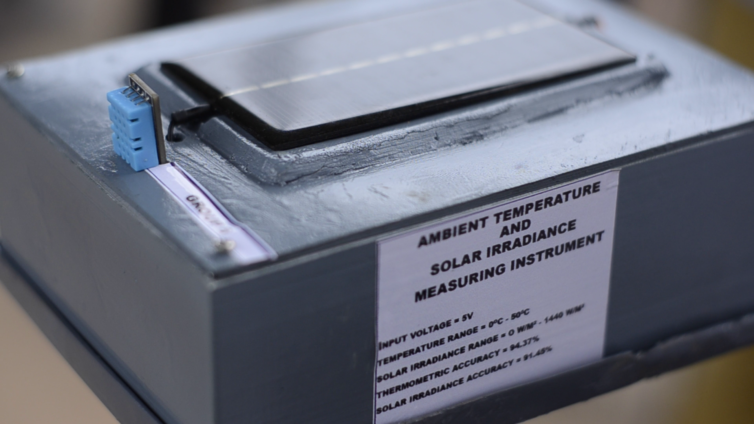
Some students at the Mechanical Engineering Department of KNUST have developed a relatively cost-effective digital instrument for measuring ambient temperature and light energy from the sun.
The instrument is designed to ease the daunting and expensive task of students accessing readily-available digital instruments for such purpose.
The annual energy output and effectiveness of solar photovoltaic systems may gradually reduce due to heat and other environmental factors.

Thus, the need for scientific measurements to deepen the understanding of the global change to better design and size PV systems for enhanced performance and economic benefit.
The variables are essential for research and design of solar photovoltaic (PV) and other renewable energy systems for clean and carbon neutral electricity generation.
Currently, most digital instruments for scientific measurements are imported into the country and they come with high initial and maintenance costs.
Under the supervision of Prof. George Yaw Obeng, the user-friendly and multi-metric prototype instrument was developed, employing a solar cell and other locally-acquired components.
Students speaks about device
“The overall accuracy of the device stands at +/-0.053 and +/-0.086 for the ambient temperature and solar irradiance respectively,” Prof. Obeng said.

When fully developed and commercialized, this device will be locally available and accessible at a relatively low cost to universities, high schools and STEM schools for scientific study and capacity development.
This would facilitate the design and sizing of renewable energy systems, particularly solar PV systems for local electricity generation for households and industrial uses.
SOURCE: MYJOYONLINE
